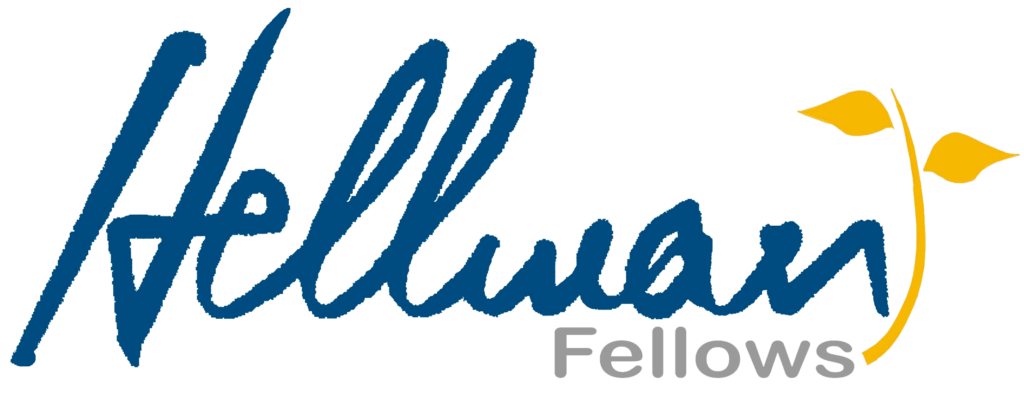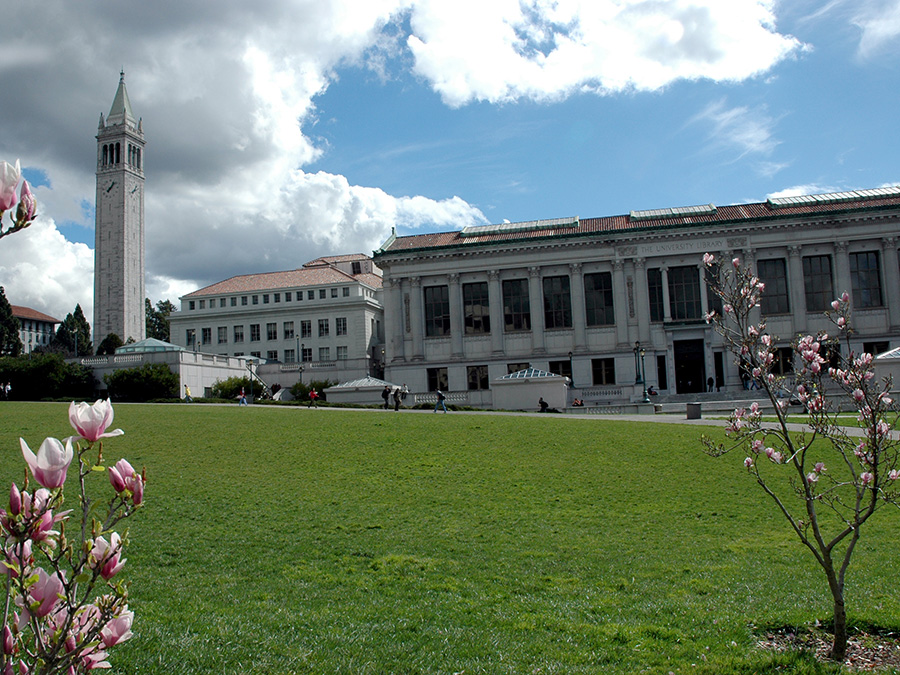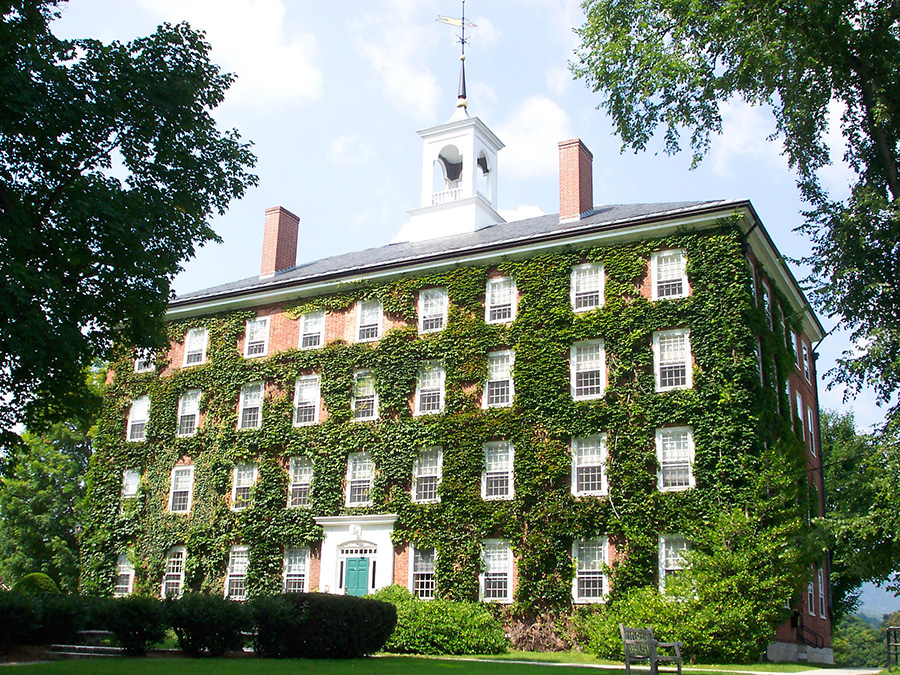Program
About The Program
The Society of Hellman Fellows is an endowed program to support the research of assistant professors who show promise for great distinction in their chosen fields across each of the ten UC campuses. The Hellman family also continues to support previously established programs at Williams College, Harvard Business School and the American Academy of Arts and Sciences.
The Program is open to junior faculty, two-four years into their careers, across a broad range of academic disciplines including the arts, humanities, social sciences, life sciences, and engineering. The expectation is that the award will contribute substantially to the professional growth of each Fellows. The most important aspect of the selection is the quality of the research rather than the popularity of the field of study. The Fellowship is a one-time award.
University of California Programs
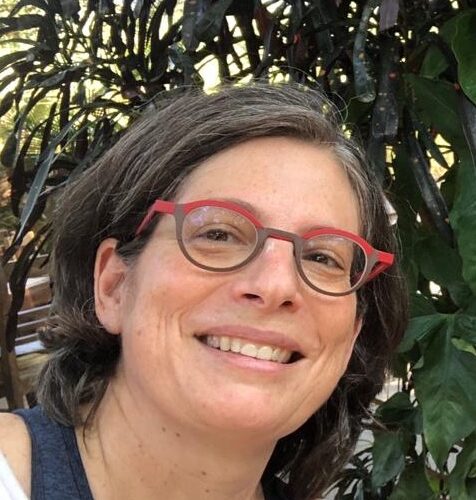
UC Berkeley
UC Berkeley was one of two campuses to launch a Hellman Fellows Program in 1995, and today faculty from 130 academic departments and 80 research units are eligible to apply. The award has grown in stature and prestige, and it is often considered a strong indicator of future tenure success. Through 2020, more than 400 Fellowships have been granted at UC Berkeley, and hundreds of students have been hired to work on Hellman-supported research projects.
As a beginning assistant professor, getting a federal grant was almost insurmountable. The Hellman fellowship put me on the track, by building the steps of success and enabling research that created the preliminary data to support my NIH application down the road.
Daniela Kaufer
Associate Dean and Professor, Department of Integrative Biology and Helen Wills Neuroscience Institute
UC Davis
The Hellman Fellows Program was started at UC Davis in 2009 and 160 Fellowships had been awarded by 2020. One unique aspect at UC Davis is that emeriti faculty participate deeply in the recruitment and selection of Fellows each year, bringing a wealth of knowledge about the award to others across the campus.
The Hellman Fellowship was critical in funding initial work on a project to better measure the ecological costs of climate change. I was able to use pilot work funded by the fellowship to successfully apply for a four-year grant from NSF to continue it. This is a major step forward for my career and an important investment in the science and economics of the ecological damages from climate change.
Frances C. Moore
Environmental Science and Policy
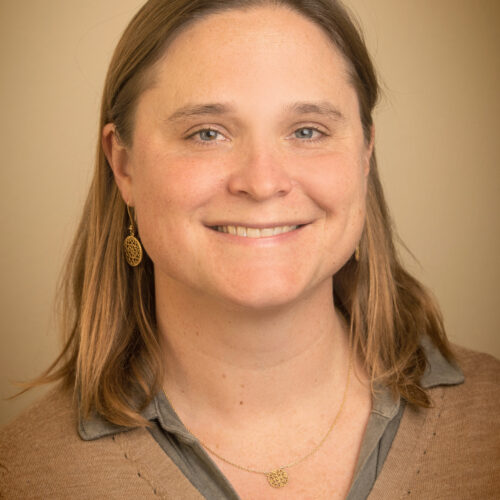

UC Irvine
The Hellman Fellows Program was launched at UC Irvine in 2013 with over 60 Fellowships awarded by 2020. Each year, a handful of junior faculty receive Fellowships with substantial financial awards. The Program is very competitive among junior faculty. Past Fellows report great success in securing external funding, and many have gone up early for tenure.
Generous funding from the Hellman Fellowship Program helped me get my second research project, an ethnography focused on Latina/o physicians, off the ground. As a qualitative researcher, part of earning tenure at an R1 is publishing a book and articles, and showing evidence of a second research project. My interest in examining the lives of Latina/o physicians grew out of my first award-winning book titled, Latina Teachers: Creating Careers and Guarding Culture. Receiving the Hellman Fellowship early in my academic trajectory gave me the vital tools necessary, such as time and resources, to dedicate to this ongoing project.
Glenda M. Flores
Associate Professor & Director of Undergraduate Studies, Department of Chicano/Latino Studies
UCLA
The UCLA Hellman Fellows Program was launched in 2011 and has grown more competitive each year, providing over 100 fellowships in the last nine years. One out of three applications were awarded in 2020.
The Hellman Fellowship was a mark of recognition that came at a critical time in my career, when I was an assistant professor trying to establish myself in a highly competitive field. The funding was very helpful, and the recognition that came with being named a Hellman Fellow was tremendously valuable.
Yvonne Chen
Associate Professor of Microbiology, Immunology and Molecular Genetics
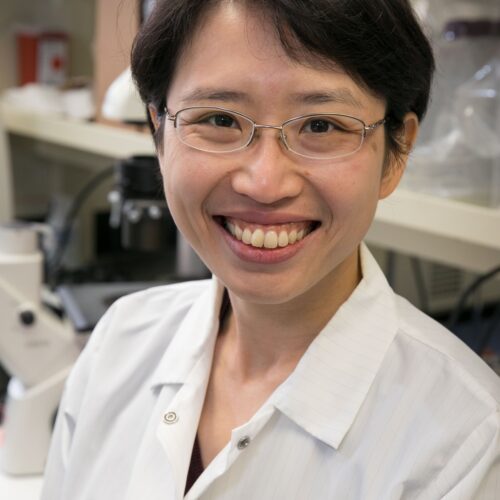
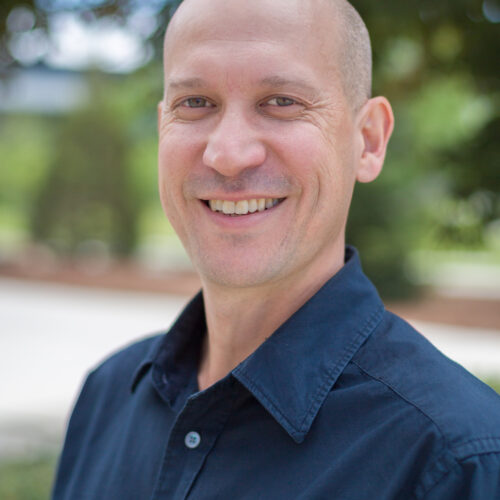
UC Merced
The Hellman Fellows Program was started in Merced in 2011, giving promising new faculty the opportunity to advance their careers and the overall research standing of the campus at the same time. One in five faculty have received a Hellman Fellowship for a total of 56 awards by 2020.
The Hellman award provided me with a most welcome financial flexibility to follow my own research inspirations. In essence, the award allowed me to broaden my creativity by funding new activities and areas of research for which I had little or no financial support. This support was so important to me as a junior faculty member to relieve pressure and to allow some creative risk.
Jason Sexton
Associate Professor, Department of Life and Environmental Sciences
UC Riverside
The Hellman Fellowship Program at UC Riverside provides fellowships from a very competitive application process each year. When it was launched in 2011 there were 32 applications. Nine years later, 110 faculty applied, and one out of 15 were funded. In 2020 a total of 65 faculty have received Hellman Fellowships.
The Hellman Fellowship came at a crucial point in my career: my research program was starting to come together, but to secure federal grants I needed to collect preliminary data. The Hellman Fellowship provided a bridge that made my grant proposals more competitive. I have just advanced to Associate professor, and the Hellman funds were a big part of my lab’s success. I am so appreciative of the support for junior faculty that the Hellman family provides — this is a truly fantastic program.
Quinn S. McFrederick
Associate Professor, UC Riverside Department of Entomology
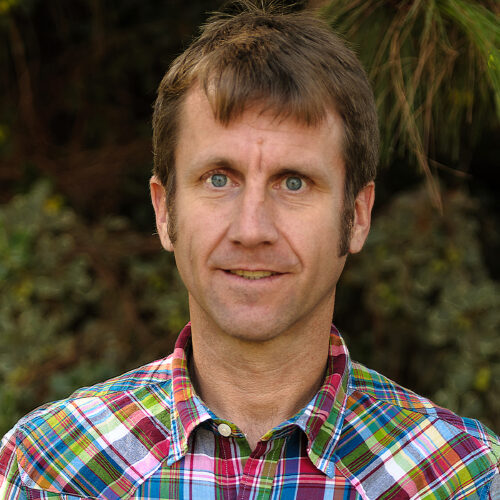
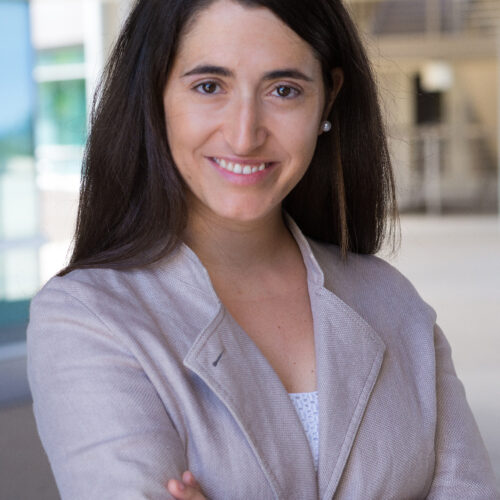
UC San Diego
The Hellman Fellows Program at UC San Diego was one of two programs launched in 1995 along with UC Berkeley. Over the last 25 years it has awarded over 370 fellowships and it has developed a reputation as a significant distinction and is known widely across campus as a “Hellman.”
I am sincerely grateful for the Hellman Fellowship. I received the fellowship several years ago, and it played a key role in my supporting my research on charitable giving. With the fellowship, I was able to conduct experiments on the intertemporal aspects of charitable giving. As a tenure-track faculty member, receiving support to conduct research and, in my case, experiments with actual donation decisions, was crucially important. The fellowship has allowed me to bring my research one step further, and investigate questions such as, how and why does a delay between a giving decision and a giving transaction affect charitable giving?
Marta Serra-Garcia
Assistant Professor of Economics and Strategy
Rady School of Management
UC San Francisco
The Hellman Fellows Program was started here in 2000 and has awarded 200 faculty Fellowships over the last 20 years. Awards are made in both basic science and clinical care. One in three applications are awarded and it has gained great distinction across the UCSF campus.
Support from the Hellman Fellows program was crucial to building my expertise in my research area: the impact of loneliness and social isolation on the health and well-being of older adults with cognitive impairment. Hellman funding provided the necessary resources to recruit this hard to reach, socially-vulnerable patient population, even during the COVID-19 pandemic. These resources and the resultant publications ultimately provided the necessary springboard for the successful receipt of a career development award from the National Institutes of Health.
Ashwin Kotwal, MD, MS
Assistant Professor, Division of Geriatrics
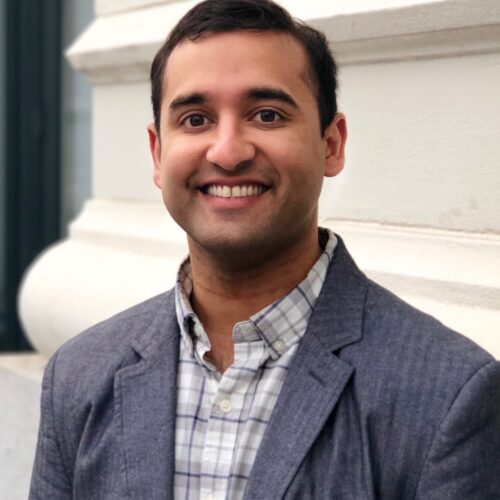
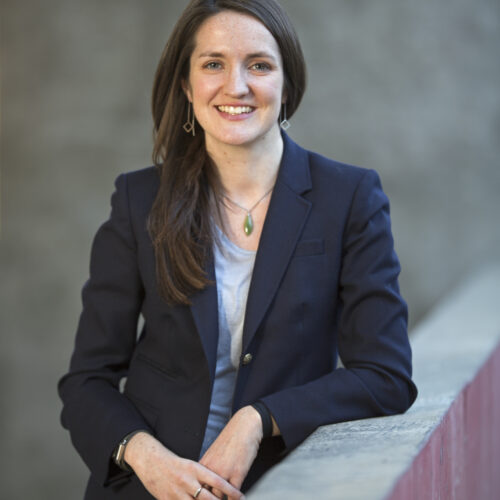
UC Santa Barbara
The first Hellman Fellowships were awarded at UC Santa Barbara in 2008, and 120 awards have been made through 2020. The applicant pool has become highly competitive and the program is much beloved on the UC Santa Barbara campus.
As a professor in a humanities discipline, the Hellman Fellowship became a turning point in my work, transforming my first book project in significant ways and laying the groundwork for future research. The funds allowed me to conduct archival research in Germany, which I incorporated into my first book manuscript, and also supported the process of editing and publishing. I would not have come across the archival materials that are the inspiration for my next project had I not received the Hellman Fellowship. I’m so grateful that the Hellman Foundation supports scholars midway through their pre-tenure careers.
Martha Sprigge
Assistant Professor, Department of Music
UC Santa Cruz
The Hellman Fellows program at Santa Cruz launched in 2011, and in its first nine years supported over 80 faculty in building their research agendas. From the outset, the campus ensured that the number and size of awards were made equally between social science and the life science programs.
Hellman Fellows provided me with research funding at a critical point in my career. It allowed me to maximize the value of my start-up funding and transition a major aspect of my research program to NSF funding, which in turn was a critical step towards earning tenure. Thus, Hellman Fellows provided a critical boost at just the right time to help propel my career forward. Since receiving the award, I have served on the selection committee at UC Santa Cruz as a way to give back to the program that supported me during this critical time.
Eric Palkovacs
Associate Professor, Ecology & Evolutionary Biology and Associate Director, Fisheries Collaborative Program
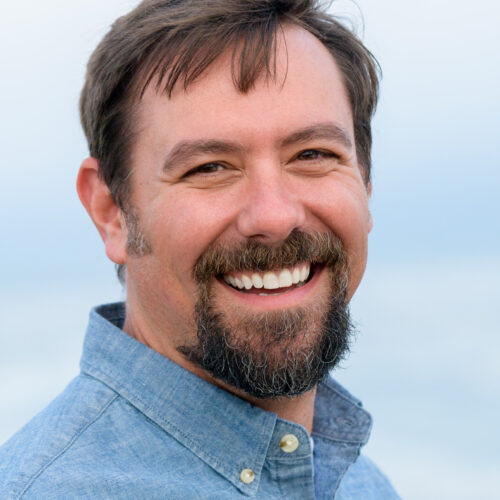
Fellowship Awardees
Hellman Fellows awardees from the ten University of California campuses and Hellman Fellows from six private institutions are provided in descending year order.
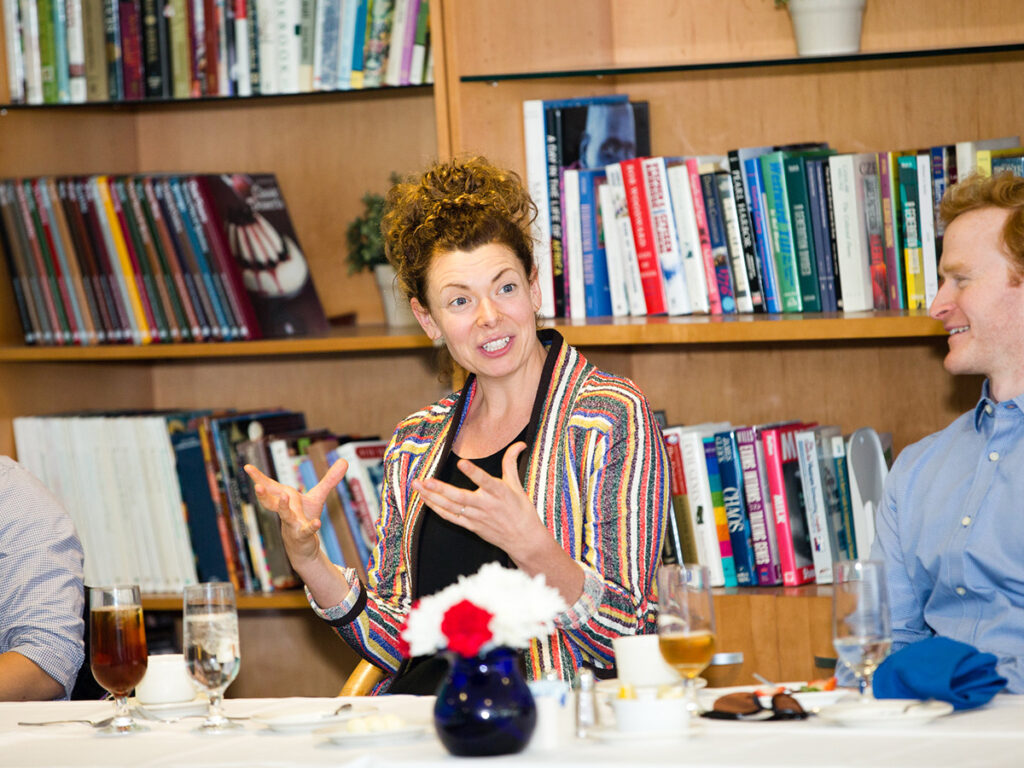
Making Connections
As funders, Chris and Warren Hellman were careful not to create undue reporting burdens about the impact of the Fellowship on recipients. They deeply understood the importance of network-building however, so held an annual celebratory lunch gathering at each campus. They loved meeting Fellows and hearing them talk about their work. For the faculty, the lunch was often their first experience presenting directly to a funder. It gave them the opportunity to learn about projects outside their discipline, to develop new professional connections and friendships, and in some cases to inspire new collaborations. Many Fellows reported that the annual lunch was their favorite part of the program.
